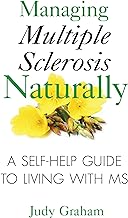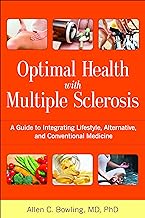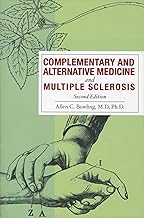Key Takeaways
| Topic | Summary |
|---|---|
| The Role of Diet and Nutrition in MS Management | Highlights the importance of a balanced diet and specific nutrients in managing Multiple Sclerosis (MS). |
| Exploring Wearable and Mobile Technologies for MS Monitoring | Discusses the innovative ways technology can help in monitoring MS symptoms and managing the condition. |
| Integrating Exercise into MS Treatment Plans | Outlines the benefits of exercise in improving strength, balance, and overall well-being in MS patients. |
| The Impact of Stress Management and Relaxation Techniques on MS | Explores the positive effects of stress management and relaxation techniques on managing MS symptoms. |
| Personalized Medicine: Tailoring MS Treatment to the Individual | Emphasizes the importance of customizing MS treatment according to individual needs and conditions. |
| The Future of Multiple Sclerosis Care: Innovations and Research | Looks into novel therapies and research advancements in the treatment of MS. |
| Understanding and Managing MS Fatigue Through Alternative Therapies | Discusses alternative approaches to managing the common symptom of fatigue in MS patients. |
Living with Multiple Sclerosis (MS) is akin to being on a roller coaster that you never queued up for; it’s full of ups, downs, and the occasional loop-the-loop. Now, imagine if someone told you that there were complementary handrails or seatbelts you could use to make the ride a bit more manageable. This, in essence, is what exploring multiple sclerosis alternative therapies offers – a supplementary grip on managing a condition that’s as unpredictable as weather in April. So, let’s dive straight into the world of alternative therapies for MS, shall we? After all, why not have as many tools in your toolbox as possible?
Understanding the Use of Complementary and Alternative Medicine in Multiple Sclerosis
When we talk about MS, conventional medicine certainly offers a raft of treatments that aim to manage symptoms and slow disease progression. However, many individuals living with MS turn to complementary and alternative medicine (CAM) in their journey to find relief and support alongside traditional medical treatments. But why is this?
For starters, books like Managing Multiple Sclerosis Naturally: A Self-help Guide to Living with MS and Optimal Health with Multiple Sclerosis: A Guide to Integrating Lifestyle, Alternative, and Conventional Medicine suggest a growing desire for a more holistic approach to managing MS. These resources delve into how diet, nutrition, exercise, and stress management can play crucial roles in overall well-being for MS sufferers.
It begs the question, though: With all these alternatives available, how do people living with MS navigate through the myriad of options, and more importantly, how do these complementary approaches fit into their existing treatment plans?
The Role of Diet and Nutrition in MS Management
The adage “You are what you eat” takes on a whole new level of significance when it comes to managing chronic conditions like MS. Literature and practical guides, such as Exercises for Multiple Sclerosis: A Safe and Effective Program to Fight Fatigue, Build Strength, and Improve Balance, emphasize the crucial role of diet and nutrition. Omega-3 fatty acids, antioxidants, and vitamin D are just a few nutrient superheroes that have been spotlighted for their potential benefits in MS management.
But how does one wade through the sea of dietary advice to find what truly benefits them? Personal stories and dietary adjustments shared in the MS community suggest that what works for one person might not work for another, making a personalized approach to nutrition paramount.
Exploring Wearable and Mobile Technologies for MS Monitoring
In an age where our watches tell us much more than just the time, it’s no surprise that wearable and mobile technologies are pioneering the monitoring and management of chronic conditions like MS. According to Complementary and alternative therapies for MS, these gadgets can track everything from physical activity levels to sleep patterns, offering not just data, but actionable insights into managing MS.
The real question is, as these technologies evolve, how will they continue to transform the day-to-day management of MS, and what role will they play in complementing traditional treatments?
Integrating Exercise into MS Treatment Plans
We’ve all heard the gospel of physical activity’s benefits, but when it comes to MS, exercise is often touted as one of the most effective complementary therapies. Books like The Edgar Cayce Way of Overcoming Multiple Sclerosis: Vibratory Medicine not only advocate for regular physical activity but also delve into the importance of vibration and movement in managing symptoms and improving mobility.
So, how do individuals balance the fine line between beneficial exercise and overexertion, which could potentially exacerbate MS symptoms?
The Impact of Stress Management and Relaxation Techniques on MS
Stress: the uninvited guest at every party. For individuals living with MS, the relationship between stress and symptom flare-ups is a particularly unwelcome one. However, the deployment of stress management and relaxation techniques can be remarkably beneficial. Exploring resources like Complementary Therapies for Multiple Sclerosis (MS) reveals a treasure trove of methods, from meditation and yoga to acupuncture, that can help ease the mind and, potentially, the symptoms of MS.
The challenge, then, lies in finding which method clicks for you. Have you had an experience where a particular stress-management technique noticeably impacted your MS symptoms?
Personalized Medicine: Tailoring MS Treatment to the Individual
The future of MS treatment lies in the ability to customize therapy down to the genetic level. Insights from Complementary and Alternative Medicine and Multiple Sclerosis highlight the shift towards personalized medicine, pioneering treatments tailored to the unique genetic makeup, lifestyle, and preferences of individual patients.
But what does this mean for the future of MS treatment, and how will it impact the use and integration of complementary and alternative therapies?
The Future of Multiple Sclerosis Care: Innovations and Research
We stand at the cusp of exciting advancements in MS research and care. With ongoing innovations, the potential for new therapies that offer hope and improved quality of life for those living with MS is immense. By staying informed through resources like 14 Alternative Medicine Options for Multiple Sclerosis, we can participate actively in the dialogue about our health and the future of MS treatment.
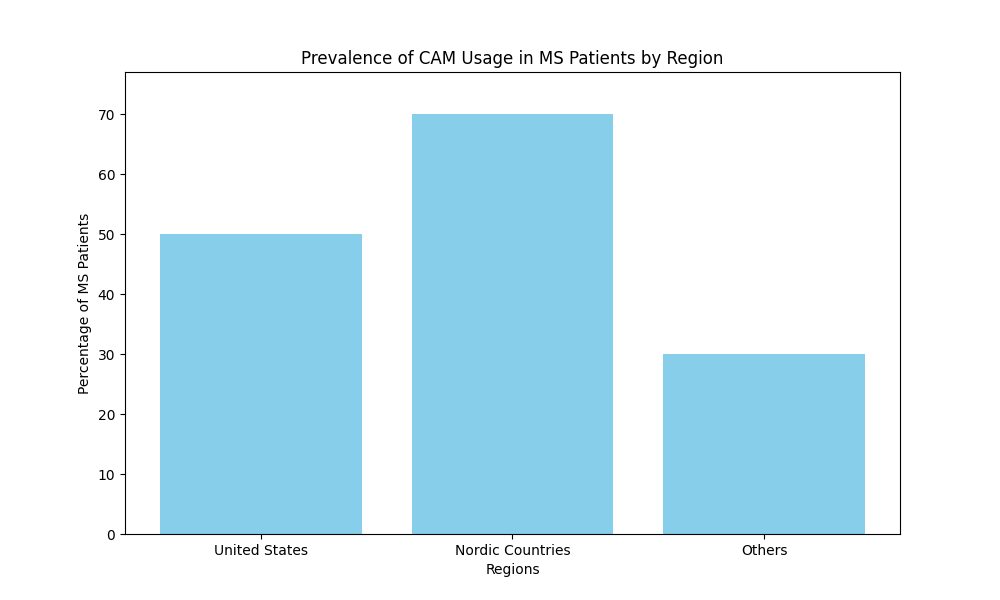
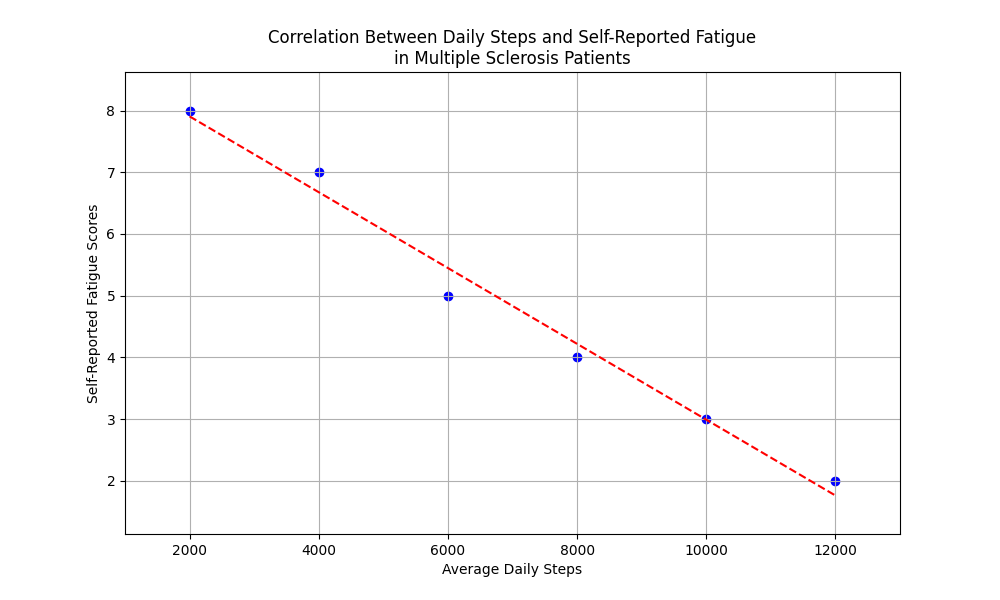
As we navigate the continually evolving landscape of MS care, the integration of conventional and alternative treatments remains a cornerstone of managing this complex condition. By combining the best of both worlds, individuals can harness a holistic approach that encompasses the body, mind, and spirit.
Related Articles
- Complementary and alternative therapies for MS
- Complementary Therapies for Multiple Sclerosis (MS)
- 14 Alternative Medicine Options for Multiple Sclerosis
- Complementary and alternative medicine for the treatment of MS
- Alternative Treatments for Multiple Sclerosis (MS)
- Uses of Complementary and Alternative Medicine in Multiple Sclerosis
Exploring multiple sclerosis alternative therapies offers a journey into a world where the person, not the condition, takes center stage. By embracing a comprehensive approach inclusive of diet, exercise, technology, stress management, and more, individuals can navigate the complexities of MS with enhanced support and hope. As we look towards the future, one marked by innovations and personalization in care, the potential for transforming the living experience of those with MS has never been brighter. Let’s continue to advocate for and participate in a multi-faceted approach to MS care—one that values the uniqueness of every individual’s journey.
Frequently Asked Questions
Q: What alternative therapies are commonly used by people with multiple sclerosis (MS)?
A: People with MS often explore various alternative treatments such as reflexology, tai chi, low-fat diet, evening primrose oil, and complementary therapies like acupuncture or herbal supplements.
Q: How can alternative therapies help in the treatment of multiple sclerosis?
A: Alternative therapies may help people with MS manage symptoms such as spasticity, cognitive impairment, and fatigue, and improve overall quality of life alongside conventional treatments.
Q: Are there any complementary therapies that can assist in reducing relapses in MS patients?
A: Some complementary therapies such as yoga, meditation, and massage have been reported to potentially reduce the frequency and severity of relapses in individuals with MS.
Q: What role do alternative or complementary treatments play in the course of the disease for MS patients?
A: Alternative or complementary therapies can complement traditional MS treatments by addressing symptoms, enhancing well-being, and providing additional support in managing the condition effectively.
Q: How do therapies like reflexology or acupuncture help in managing symptoms in MS patients?
A: Therapies like reflexology and acupuncture may help alleviate symptoms like pain, spasticity, and stress, promoting relaxation, improving circulation, and supporting the body’s natural healing processes.
Q: Can complementary or alternative medicine be used alongside conventional treatment options for MS?
A: Yes, complementary or alternative therapies can be integrated with traditional treatment approaches for MS to create a holistic care plan that addresses both physical and emotional needs of individuals with the condition.
Q: How do complementary therapies like tai chi or yoga benefit people with MS?
A: Practices such as tai chi and yoga can help improve balance, flexibility, strength, and reduce stress levels in individuals with MS, contributing to better overall physical and mental well-being.

